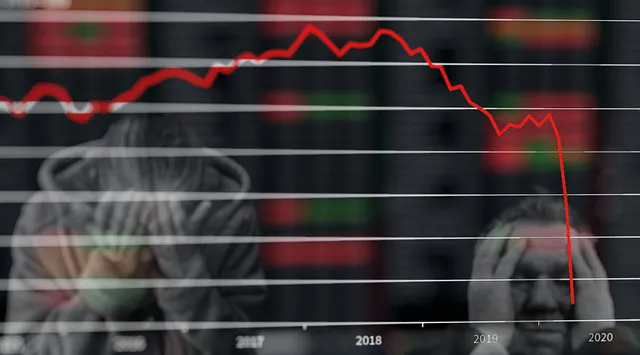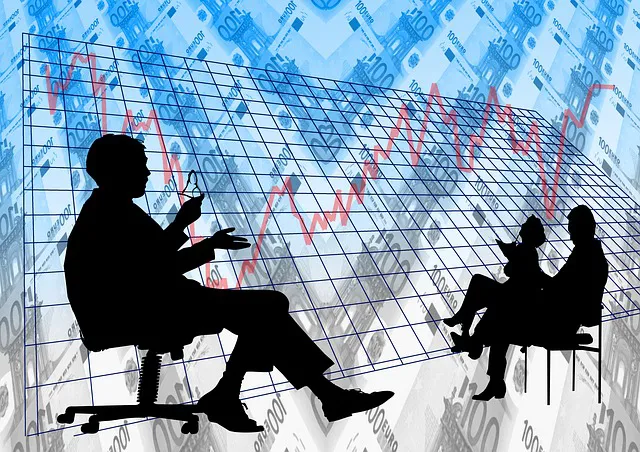In the earliest century, many people were concerned about the future of industrial society and feared that capitalist markets might fail, producing widespread poverty and misery. Such fears inspired a new academic field called “economics”. The primary task of economics is to analyze how humans allocate scarce resources, such as time, effort, and money to achieve some goal.

Source
The way we answer this question reveals our values and our assumptions about the world. If we view humanity as primarily social creatures who value relationships over material goods, we will have different answers than if we view people as isolated egos who only care about their pleasure and prosperity. Similarly, believing that individuals are naturally selfless or self-interested will also affect our conclusions.
Fortunately, economics isn’t just an abstract academic exercise; it directly affects your life. If you want to understand why things cost in the manner that they do or how businesses thrive or fail in your local economy, this article will give you some background on economic theory and why it matters in real life.
What is economics?
Economics is the study of how we use our limited time, energy, and money to create the lives we want. This might sound obvious, but it can be helpful to clarify what exactly is included in this definition. The first part of the definition, “how we use our limited time, energy, and money”, includes both the things we do with our resources and the way we go about deciding which things to do with them.

Source
To put it another way, we use our resources for anything that requires taking time and energy away from other things. This includes both paid work and household chores, and also the work of taking care of our health, nurturing relationships, and developing our various talents and interests.
The second part of the definition, “to create the lives we want”, is about what we choose to do with our limited resources. In other words, it’s about our values and goals. This might also seem obvious, but it’s often forgotten. For example, when we talk about “economic growth” or “job creation”, it’s easy to forget that these are simply technical ways of describing how we’re creating our lives.
The art of prioritization
The core idea of economics is that people have limited time and energy, and therefore must decide how to use those resources to create the lives they want. This process of selecting which things to do with our limited resources is called "prioritization". We prioritize both what we do with our resources (e.g., which house to buy, how often to visit family, etc.), as well as how we go about making those decisions.

source
This is the core of economics: the study of how we prioritize our lives. This also has important implications for how we view other people. What we do with our time and money reveals our values, so when we look at someone else's life, we are looking at their priorities and values. This means that when we discuss economic issues, we're talking about human values; what we think is important, and what we want out of life.
The value of scarcity
Most economic theory starts with a basic assumption: the world is “scarcity”. Scarcity simply means that our desires are greater than our means. This doesn’t mean that the world is somehow bad, it just means that every choice we make means we are forgoing other possibilities. Because we can’t do everything, every choice is, in a sense, an abdication. This means giving up on one possibility in favor of another. This also doesn't mean that we are somehow bad for wanting to do things. It simply means that desires are always competing against each other, which is the basis of all human decision-making.
The value of scarcity has important implications for how we view the world. And it's explained in numerous ways such as;
Supply and demand
One of the most useful concepts in economics is “supply and demand”. This is a simple way of graphing out the relationship between quantity and price. The idea is that as quantity rises, the price also rises; and as quantity falls, the price also falls. However, the ratio between quantity and price is what determines how quickly one changes in response to the other. For example, if the price of donuts increases, sales will fall. But the more expensive donuts become, the more slowly sales will fall. If donut prices rise but are still affordable, sales will fall quickly. But once donuts become luxury items, it will take much longer for sales to fall.
Wealth and well-being
Another important concept is the difference between wealth and well-being. While the two concepts are related, they aren’t the same thing.
Happiness and autonomy
These are two closely related concepts too. The first is happiness, i.e., how we feel in the moment. The second is autonomy, i.e., control over one’s life and decision-making. All people want to be happy and autonomous, but these things aren’t the same.
Suffering and inequality
These are two different types of scarcity. The first is economic scarcity, i.e., how much you have of various material goods. The second is social scarcity, i.e., the extent to which you can fully participate in society.
You can't just trust your instincts when it comes to Money
The fact that most people have something to say about economic theory is a good sign. After all, you don’t need to understand the theory behind something to have an opinion about it. However, most people are guilty of economism; the tendency to assume that economic theory is correct and that other theory are simply invalid.
Given that economic theory is largely a social construction, this is not surprising. However, it’s important to remember that economic theory is not a set of neutral facts, like the laws of physics. It’s a social construction, which means it’s something that humans made up, and therefore subject to change.
Why knowing economics is important
Naturally, many people disagree with the theory of scarcity. There are even a few people who disagree with supply and demand curves. But most of the alternatives to economic theory assume that scarcity doesn’t exist, i.e., that human desires are unlimited. These are generally utopian visions of the world, and historically, they don’t go well.
They assume that if you give people something, they’ll naturally want to use it for good. The fact is, however, that people generally use whatever power they have for selfish ends. There’s nothing wrong with this; it’s a natural part of being human. But it’s important to remember that we’re not inherently good.
Knowing the basics of economic theory gives you a framework for evaluating the claims people make. It helps you ask (and answer) questions like: What is the theory behind this? How does this theory differ from other theories? And does this theory help people to be happy and autonomous?
Conclusion
The important thing to remember about economic theory is that it’s a human construction. This means that it’s not a neutral set of facts, but rather a way of looking at the world. And as such, it reflects the assumptions and values of the people who created it. Given this, it’s important to be aware of your assumptions and biases when considering economic theory. And to remember that these are just theories. Economic theory may be helpful, but it can also be dangerous when we assume that it’s always correct and that other theories are invalid.